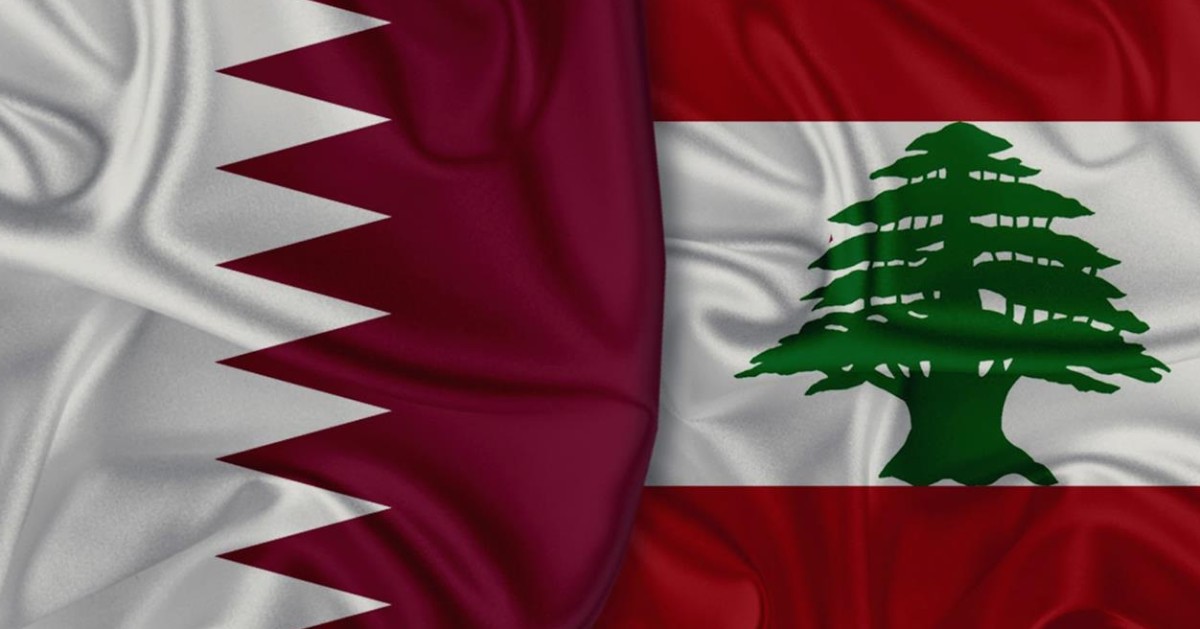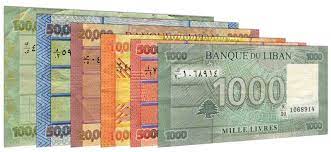
Beirut: Lebanon caretaker prime minister HE Najib Mikati described QatarEnergy's acquisition of 30% exploration rights in two offshore areas off the coast of the Republic of Lebanon as exceptional, given the experience and position that QatarEnergy has reached in the global oil and gas industry. During his meeting on Sunday with the Minister of State for Energy Affairs, President and CEO of QatarEnergy HE Eng. Saad bin Sherida Al Kaabi, the Lebanese caretaker prime minister said that the start of exploration and petroleum activities in the Lebanese waters would have a positive impact on the short and medium terms in regards to providing opportunities for Lebanese companies interested in the petroleum services sector. It would also provide job opportunities for Lebanese youths, especially those working in the technical field. Mikati added that TotalEnergies - which owns a 35% stake, in addition to Eni - which owns a 35% stake, would start drilling operations in Block 9 after completing the environmental surveys, drilling-related operations, and the launch of logistical operations in Beirut Port.
Sources in the Lebanese Ministry of Energy say that Novatek justified its move by saying that the US sanctions imposed on Russia had a negative impact on it, and that it was no longer able to make any financial transfers outside Russia. This is logical, especially since Novatek’s role in the alliance is one of an investment partner, not a technical one.
Could the latest decision have been taken after consultations between the three companies took place, in light of the pressures the Russian company is facing from the United States due to the Russian-American war, so that “Total” and “Eni” can continue the work required of them? Or was there a “settlement” between the three companies, fearing that Total and Eni would be subject to US sanctions because of their dealings with the Russian company? This is highly probable, especially since Total and Eni sent books of similar content to the Ministry of Energy following the Novatek book, in which they confirmed that they would continue their contractual obligations regarding exploration in blocks 4 and 9, and that they are ready to discuss the rights of others in the coalition.
BEIRUT (AP) By Bassem Mroue — Lebanon, two international oil giants and state-owned oil and gas company Qatar Energy signed an agreement Sunday that the Qatari firm will join a consortium that will search for gas in the Mediterranean Sea off Lebanon’s coast. The deal inked in Beirut brings Qatar into Lebanon’s gas exploration market three months after Lebanon and Israel signed a U.S.-mediated maritime border agreement ending a yearslong dispute. Qatar Energy is replacing a Russian company that withdrew from the Lebanese market in September. In 2017, Lebanon approved licenses for an international consortium including France’s TotalEnergies, Italy’s ENI and Russia’s Novatek to move forward with offshore oil and gas development for two of 10 blocks in the Mediterranean. The borders of one of the two blocks were disputed by neighboring Israel until a maritime border deal was reached last year. The companies did not find viable amounts of oil or gas in block No. 4 north of Beirut, and drilling in block No. 9 in the south has been repeatedly postponed because of the dispute with Israel.

By Sarah Glubb - arabnews.com -- LONDON: The financial crisis in Lebanon could be resolved within five to 10 years if a “well thought out program” is implemented that takes care of small depositors, addresses the needs of medium-sized ones and brings big depositors on board as partners in new banks, according to a finance industry expert in London. The Lebanese economy has “continued to deteriorate to untenable levels,” according to the International Monetary Fund. Per capita gross domestic product fell by 36.5 percent between 2019 and 2021, and is expected to contract even further this year. “They could have had a quicker recovery had they started earlier,” said George Kanaan, CEO of the Arab Bankers Association, a nonprofit professional organization in London whose members work in banking and related industries in the Arab world and the UK. “But three years have passed and nothing has happened.”
Kanaan, head of the ABA since 2009, has worked for prominent banks in New York, London and Saudi Arabia since 1975. He said it is not unusual that one or two banks might fail in a country, or perhaps a segment of the industry or a specialty sector, “but for a system to fail entirely is almost unique in history.” The Lebanese pound has lost approximately 90 percent of its value during the economic crisis in the country and continues to tumble to record lows, reaching above 60,000 pounds to the dollar on Friday. “We would like to see joint action by the (big) depositors to work with the banks, the government and the IMF, if they can be brought in, to restructure a system that has failed — and the failure of the system was comprehensive,” Kanaan told Arab News during an exclusive interview. He said that corruption and a waste of revenues and resources actually played only a small part in the failure, and that the financial system collapsed mainly as a result of the incompetence of its management, particularly at the nation’s central bank, Banque du Liban.

by Kyle Wiggers@kyle_l_wiggers -- techcrunch -- An impressive new AI system from Google can generate music in any genre given a text description. But the company, fearing the risks, has no immediate plans to release it. Called MusicLM, Google’s certainly isn’t the first generative AI system for song. There have been other attempts, including Riffusion, an AI that composes music by visualizing it, as well as Dance Diffusion, Google’s own AudioML and OpenAI’s Jukebox. But owing to technical limitations and limited training data, none have been able to produce songs particularly complex in composition or high-fidelity. MusicLM is perhaps the first that can.
Detailed in an academic paper, MusicLM was trained on a dataset of 280,000 hours of music to learn to generate coherent songs for descriptions of — as the creators put it — “significant complexity” (e.g. “enchanting jazz song with a memorable saxophone solo and a solo singer” or “Berlin ’90s techno with a low bass and strong kick.” Its songs, remarkably, sound something like a human artist might compose, albeit not necessarily as inventive or musically cohesive. It’s hard to overstate just how good the samples sound, given that there aren’t musicians or instrumentalists in the loop. Even when fed somewhat long and meandering descriptions, MusicLM manages to capture nuances like instrumental riffs, melodies and moods.

by Najia Houssari - arabnews.com -- BEIRUT: In less than 24 hours, Lebanon’s currency dropped in value by over 10,000 Lebanese pounds, with the exchange rate nearing 70,000 to the dollar — a plunge that comes at a time when Lebanese were dreading the exchange rate reaching 50,000 to the dollar. Economist Jassem Ajaka told Arab News: “We are following in the footsteps of Venezuela. The central bank’s intervention to stop the local currency from depreciating this fast will not work as long as there is no government action.” Ajaka said he believed that the problem lay in the Lebanese structure, lack of confidence in politics and judges, and the conflict with the international community over Lebanon’s failure to pay its debts. To avoid losses, commercial and service institutions priced their products based on a much higher exchange rate, in anticipation of further devaluation. Such action significantly decreased citizens’ purchasing power.
The price of a 20-liter canister of fuel jumped by 147,000 Lebanese pounds within 24 hours, reaching 1,147,000 LBP ($19 based on the exchange rate of 60,000 LBP/USD), which is equivalent to the salary of a public sector employee. The unstable exchange rate pushed the owners of grocery stores to either close for the day or stop selling certain products. More protesters took to the streets in rural Lebanese areas on Friday, blocking roads with burning tires. The Baalbek International Road was completely cut off in protest against the economic situation. Protesters also blocked Al-Minya International Road in northern Lebanon in both directions, in protest against the deteriorating living conditions. The Ministry of Economy issued a decision raising the price of a big bundle of Arab bread to 29,000 LBP (48 cents). With prices soaring, some taxi drivers opted to stay in one region to avoid wasting fuel in traffic jams, constantly changing their fares depending on the exchange rate.
Khazen History


Historical Feature:
Churches and Monasteries of the Khazen family

St. Anthony of Padua Church in Ballouneh
Mar Abda Church in Bakaatit Kanaan
Saint Michael Church in Bkaatouta
Saint Therese Church in Qolayaat
Saint Simeon Stylites (مار سمعان العامودي) Church In Ajaltoun
Virgin Mary Church (سيدة المعونات) in Sheilé
Assumption of Mary Church in Ballouneh
1 - The sword of the Maronite Prince
2 - LES KHAZEN CONSULS DE FRANCE
3 - LES MARONITES & LES KHAZEN
4 - LES MAAN & LES KHAZEN
5 - ORIGINE DE LA FAMILLE
Population Movements to Keserwan - The Khazens and The Maans
ما جاء عن الثورة في المقاطعة الكسروانية
ثورة أهالي كسروان على المشايخ الخوازنة وأسبابها
Origins of the "Prince of Maronite" Title
Growing diversity: the Khazin sheiks and the clergy in the first decades of the 18th century
Historical Members:
Barbar Beik El Khazen [English]
Patriach Toubia Kaiss El Khazen(Biography & Life Part1 Part2) (Arabic)
Patriach Youssef Dargham El Khazen (Cont'd)
Cheikh Bishara Jafal El Khazen
Patriarch Youssef Raji El Khazen
The Martyrs Cheikh Philippe & Cheikh Farid El Khazen
Cheikh Nawfal El Khazen (Consul De France)
Cheikh Hossun El Khazen (Consul De France)
Cheikh Abou-Nawfal El Khazen (Consul De France)
Cheikh Francis Abee Nader & his son Yousef
Cheikh Abou-Kanso El Khazen (Consul De France)
Cheikh Abou Nader El Khazen
Cheikh Chafic El Khazen
Cheikh Keserwan El Khazen
Cheikh Serhal El Khazen [English]
Cheikh Rafiq El Khazen [English]
Cheikh Hanna El Khazen
Cheikha Arzi El Khazen
Marie El Khazen